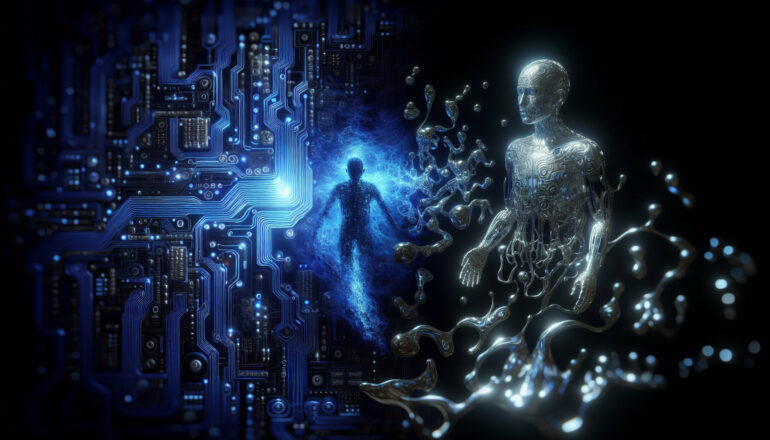Imagine attending a funeral where the person who has died speaks directly to you, answering your questions and sharing memories. This happened at the funeral of Marina Smith, a Holocaust educator who died in 2022.
Thanks to an AI technology company called StoryFile, Smith seemed to interact naturally with her family and friends.
The system used prerecorded answers combined with artificial intelligence to create a realistic, interactive experience. This wasn’t just a video; it was something closer to a real conversation, giving people a new way to feel connected to a loved one after they’re gone.
Virtual life after death
Technology has already begun to change how people think about life after death. Several technology companies are helping people manage their digital lives after they’re gone. For example, Apple, Google and Meta offer tools to allow someone you trust to access your online accounts when you die.
Microsoft has patented a system that can take someone’s digital data – such as texts, emails and social media posts – and use it to create a chatbot. This chatbot can respond in ways that sound like the original person.
In South Korea, a group of media companies took this idea even further. A documentary called “Meeting You” showed a mother reunited with her daughter through virtual reality. Using advanced digital imaging and voice technology, the mother was able to see and talk to her dead daughter as if she were really there.
Virtual reality ‘reunites’ a mother with her dead daughter.
These examples may seem like science fiction, but they’re real tools available today. As AI continues to improve, the possibility of creating digital versions of people after they die feels closer than ever.
Who owns your digital afterlife?
While the idea of a digital afterlife is fascinating, it raises some big questions. For example, who owns your online accounts after you die?
This issue is already being discussed in courts and by governments around the world. In the United States, nearly all states have passed laws allowing people to include digital accounts in their wills.
In Germany, courts ruled that Facebook had to give a deceased person’s family access to their account, saying that digital accounts should be treated as inheritable property, like a bank account or house.
But there are still plenty of challenges. For example, what if a digital clone of you says or does something online that you would never have said or done in real life? Who is responsible for what your AI version does?
When a deepfake of actor Bruce Willis appeared in an ad without his permission, it sparked a debate about how people’s digital likenesses can be controlled, or even exploited, for profit.
Cost is another issue. While some basic tools for managing digital accounts after death are free, more advanced services can be expensive. For example, creating…



